The best movies of 2020
Cinema didn't only survive this year. It thrived.

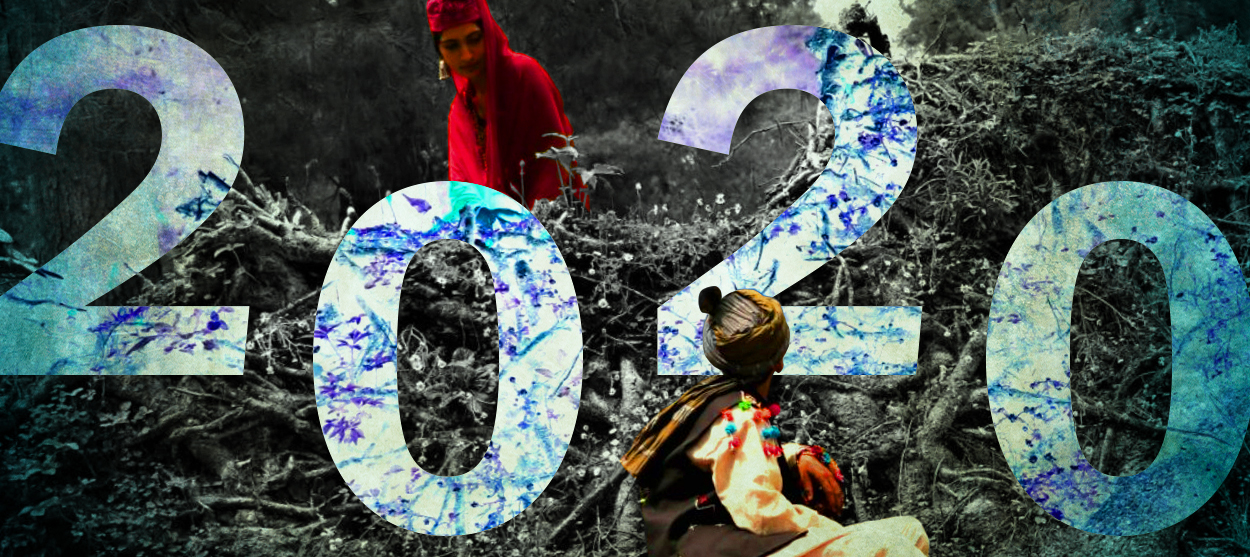
A free daily email with the biggest news stories of the day – and the best features from TheWeek.com
You are now subscribed
Your newsletter sign-up was successful
The last movie I saw in a theater in 2020 was Birds of Prey, at the AMC in Times Square. In retrospect, it was the perfect way to go out: Though none of us knew it then, it was to be one of the last big, glitzy, and thoroughly enjoyable blockbusters on the big screen this year.
Smash cut to March, when the new James Bond movie, No Time to Die, was delayed seven months due to concerns about the "global theatrical marketplace," as theaters in China shuttered over the coronavirus outbreak. Weeks later, America would be in the thick of its own enormous outbreak — and Hollywood would begin its slow, and perhaps irrevocable, adaptation to the circumstances.
As a consequence, I watched every one of the year's best movies listed here on a laptop screen (or mirrored from my laptop onto my TV). Poor quality abounded; there were lags, heavily watermarked press screeners, abundant technical difficulties. Still, I came away with immense hope for the industry. This was a year cinema didn't only survive, it thrived. Movies that would have been drowned out any other year were given the space to rise to the top.
The Week
Escape your echo chamber. Get the facts behind the news, plus analysis from multiple perspectives.

Sign up for The Week's Free Newsletters
From our morning news briefing to a weekly Good News Newsletter, get the best of The Week delivered directly to your inbox.
From our morning news briefing to a weekly Good News Newsletter, get the best of The Week delivered directly to your inbox.
Next year I imagine, sometime when I'm fresh off my second coronavirus vaccine shot, I'll go to a movie theater again. I'll buy a bucket full of popcorn (and, let's be honest, I'll probably dunk my whole head in it out of euphoria). I'll finally see Dune. But I won't forget this weird — and often wonderful — year of movies.
The fine print: Only films that premiered in the U.S. in 2020 are included on this list, which explains the absence of both First Cow and Beanpole — movies I adored, but that I included on my 2019 list. And while I try to see every major release in a year, there will always be embarrassing oversights come December: Bloody Noses, Empty Pockets; Collective; Time; Wolfwalkers; and Kajillionaire are still high on my to-watch list, while the press screening of Soul came too late to be considered for inclusion.
7. The Disciple (Chaitanya Tamhane)
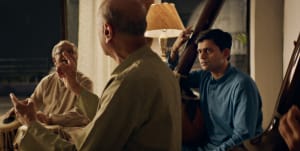
(The Disciple)
A free daily email with the biggest news stories of the day – and the best features from TheWeek.com
As AC/DC once said, it's a long way to the top if you want to rock 'n' roll. It's an even longer way to the top if you want to be a singer of North Indian classical music, as is the dream of the protagonist of The Disciple. Sharad (played by real-life musician Aditya Modak) has a comfortable life in Mumbai, where he studies raga technique with his elderly guru. But Sharad is only a good singer, not a great one — a source of endless frustration for the intense young student, who only wants to be the best.
The Disciple draws easy parallels to other künstlerroman-style movies like Whiplash or A Star Is Born, but has an identity entirely its own thanks to the slick and polished work of director Chaitanya Tamhane. Though The Disciple was notable for its inclusion at the Venice Film Festival this year — it is the first Indian film to compete at the prestigious festival since Monsoon Wedding back in 2001, and won Best Screenplay — it has strong potential for the U.S. market, where it has yet to get a formal release (I saw it at this year's virtual New York Film Festival).
Produced by Alfonso Cuarón, the film was controversially passed over as India's submission to the Best International Feature Film category for the 93rd Academy Awards — a mistake, in my opinion. The Disciple might have a uniquely Indian context, but its story of recognizing the limitations of your talents is achingly universal.
6. Another Round (Thomas Vinterberg)
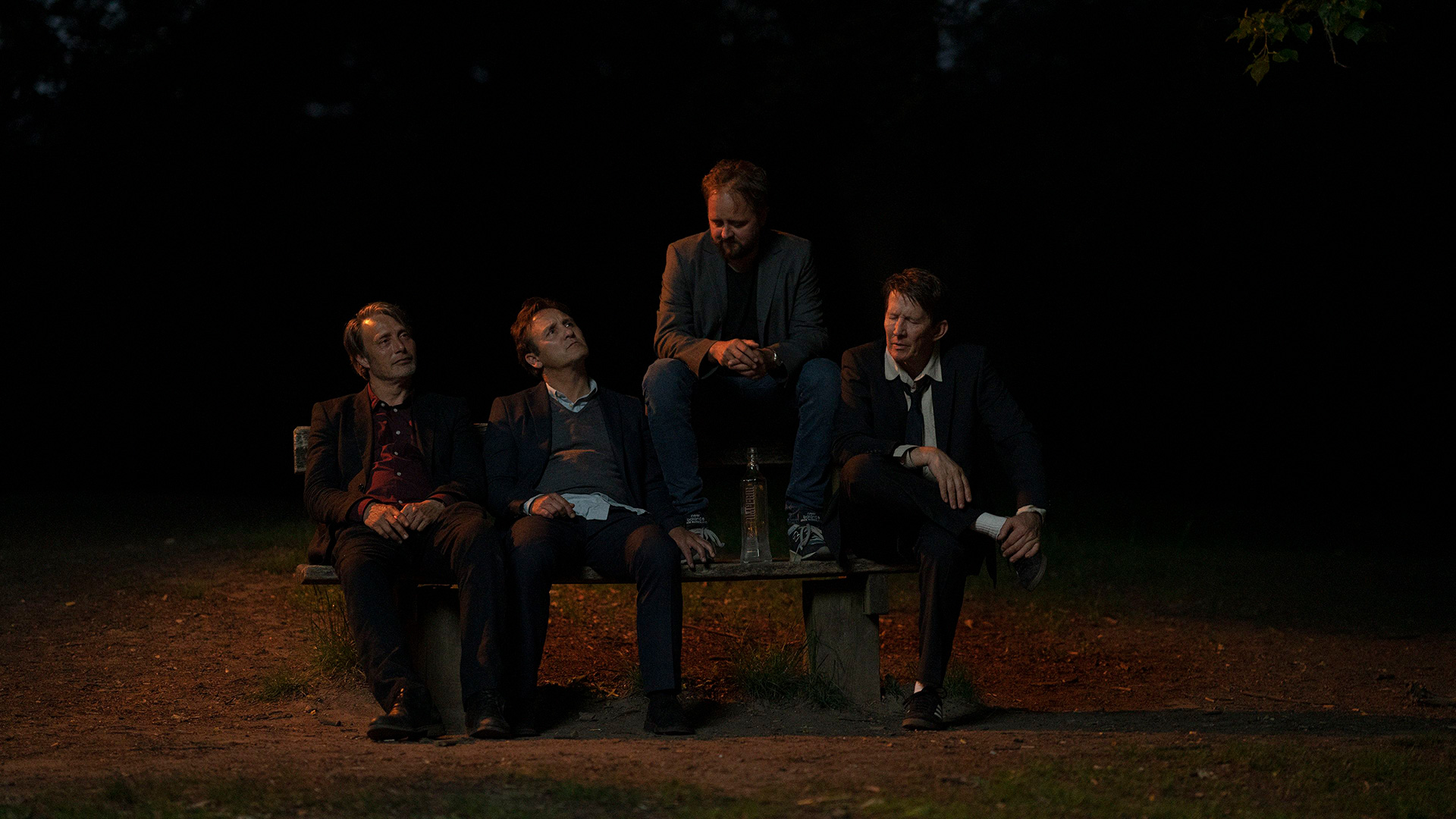
Someone described Another Round as director Thomas Vinterberg and actor Mads Mikkelsen's "dancing and hugging" movie, and that's not such a bad way to put it. In it, Martin (Mikkelsen) is an aging high school teacher who feels like he's lost his luster, and decides to join his friends in an experiment to keep their blood alcohol content at a steady 0.05 percent (the legal driving limit in Denmark, where the film takes place). As you'd expect, shenanigans quickly ensue.
Mikkelsen, though, elevates the movie from a mere drinking buddy comedy to a moving depiction of a man coming to terms with growing older. And I'm not the first to remark with delight about it's splendid final scene, which makes it worth watching alone.
5. Let Them All Talk (Steven Soderbergh)

(HBO Max)
The world's most prolific retired director, Steven Soderbergh, took Meryl Streep, Candice Bergen, and Dianne Wiest on a cruise under the guise of making a movie. Or so I'd like to imagine was the case with the deliciously fun result, Let Them All Talk, in which the celebrated writer Alice Hughes (Streep) talks her publisher into sending her and her two estranged college friends across the Atlantic on the Queen Mary 2, so she can accept a prestigious literary prize in England. (Lucas Hedges, meanwhile, tags along as Alice's beloved nephew, Tyler).
While Alice dismissively waves off her friends as soon as they're on board in order to work on her new manuscript, it's hard not to run into people you're avoiding, even on a big boat. There is turbulence — much of it improvised by the cast, although short story writer Deborah Eisenberg provided the backbone with her script — and mystery. Though structurally Let Them All Talk may at first feel like a familiar melodrama, it's a sharp little work that could so easily have been mishandled, but instead surprises at every turn.
4. The Nest (Sean Dunkin)
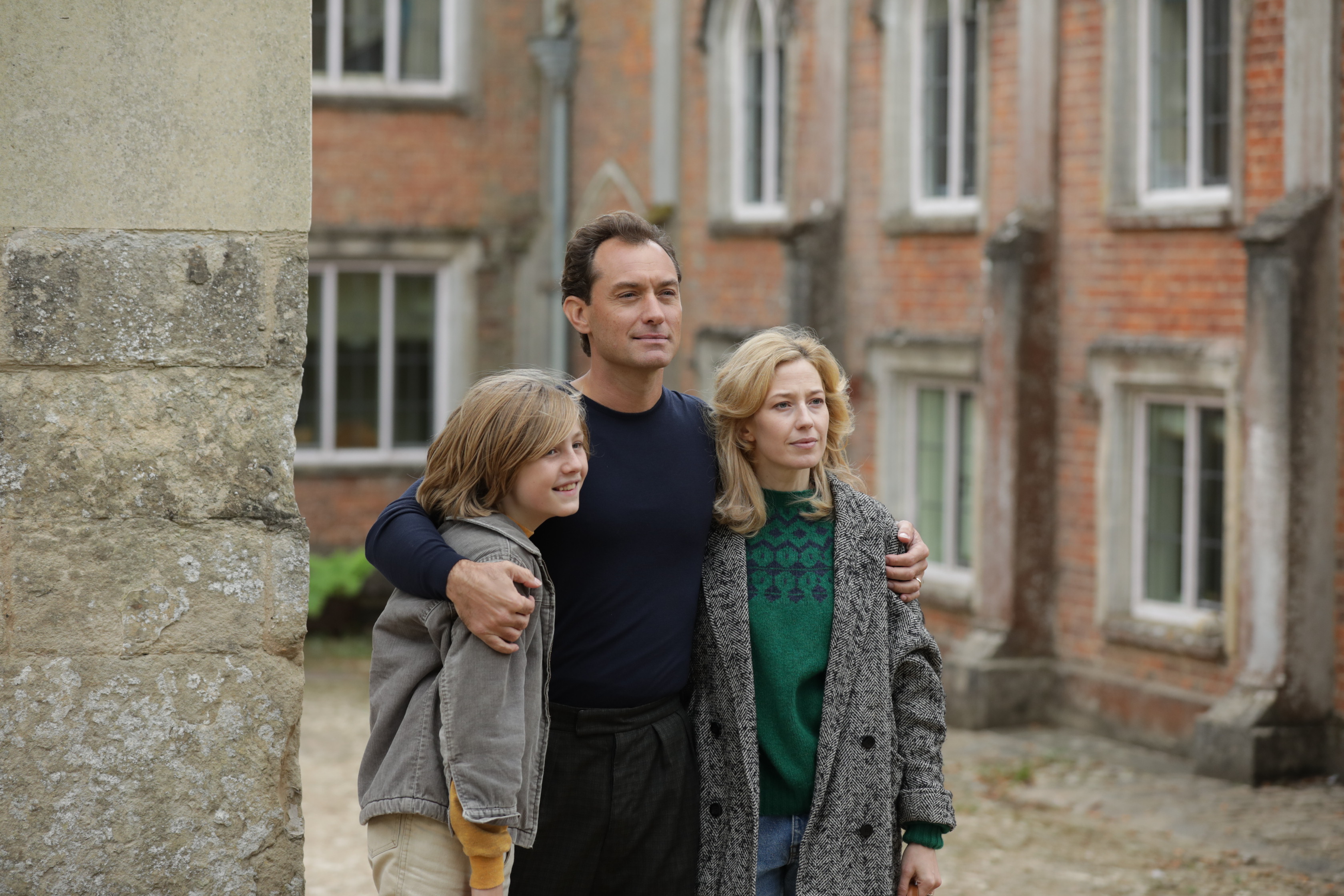
There was a moment early in The Nest when I was pretty sure it was going to be a haunted house movie. And I suppose in some sense, I wasn't wrong. Carrie Coon plays Allison, the American wife of a Brit, Rory (Jude Law), who moves his family to a large, drafty-looking mansion in England as he pursues an ambitious job opportunity. But the phantoms in their relationship soon come out to play in this unnerving portrait of an unraveling marriage, set against the backdrop of the Reagan and Thatcher era.
While director Sean Dunkin goes heavy on the atmosphere of dread, this is a subtle movie relying on the cut of eyes across tables and the inflection of "I'm fine." Be warned, though: the short runtime doesn't ever give you a reprieve. It's an intensely stressful ride.
3. Da 5 Bloods (Spike Lee)
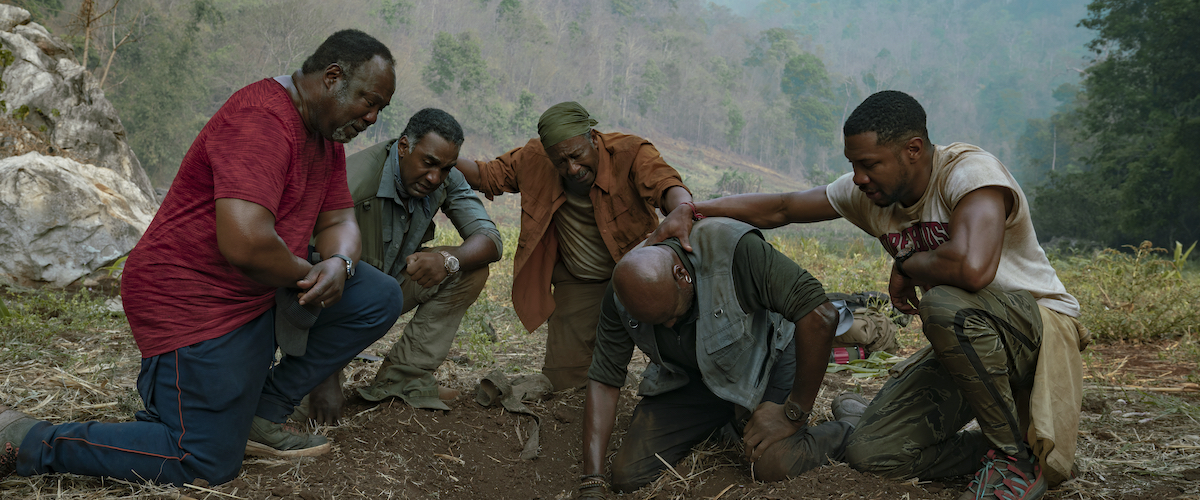
Da 5 Bloods is an epic, two-hour-and-thirty-four minute film that confirms Spike Lee as one of this country's greatest living filmmakers. In it, four Vietnam veterans (played by Delroy Lindo, Clarke Peters, Isiah Whitlock Jr., and Norm Lewis) return to the country to recover the chest of gold they'd buried half a century ago during the war, as well as to collect the remains of their friend, Stormin' Norman (Chadwick Boseman, in his penultimate role), who had died during a firefight in the jungle.
But this isn't just an anti-war film, or a movie about old timers getting together for one last job. Lee blends genres, influences, and archival footage in order to reckon with the overlooked experience of Black Americans in Vietnam, and how our nation's sins aren't really gone, but buried like long-forgotten landmines. It's perhaps overly simplistic to call Da 5 Bloods one of the greatest movies of the Trump era, although it's true, because the scope is so much broader than that. As the Bloods' Vietnamese tour guide tells them, "After you've been in a war, you understand it never really ends. Whether it's in your mind or in reality. These are just degrees."
2. Never, Rarely, Sometimes, Always (Eliza Hittman)
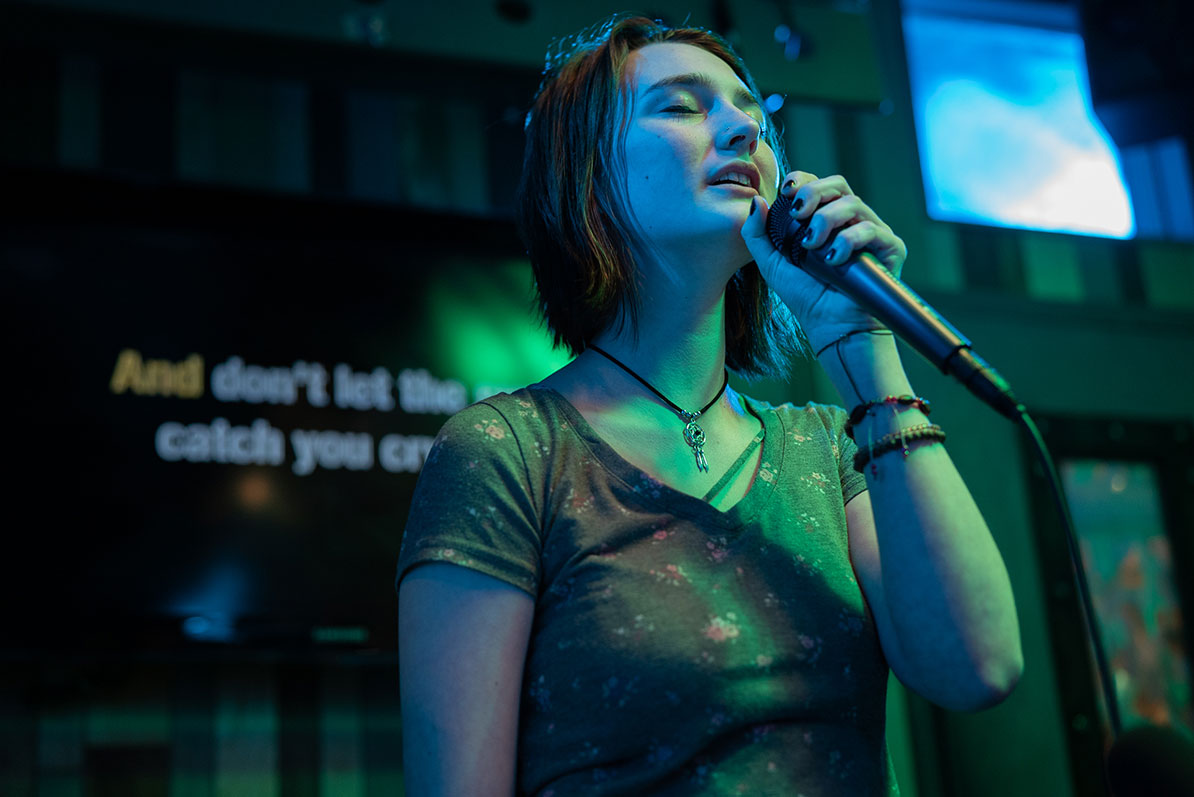
There are a lot of movies out there about abortion. Some are great — the Romanian film 4 Months 3 Weeks and 2 Days comes immediately to mind — while others fall back on the same tropes, or worse, misconceptions. Never, Rarely, Sometimes, Always, which won the special jury award at Sundance last winter, is firmly in the former category: It is a deeply humane and haunting film about a Pennsylvania teen (Sidney Flanigan) who travels with her cousin (Talia Ryder) to New York City after learning she's pregnant.
The brilliance of the movie, though, is in director Eliza Hittman's restraint: Her light touch means she is never in danger of over-indulging her points, and it allows Flanigan and Ryder the space to give two of the best performances of the year. Which is important, because Never, Rarely, Sometimes, Always isn't a film "about" abortion, really. Rather, it's about the tight binds of friendship, the cruel obstacles of class — and the awe-inspiring strength of every young woman who is finding her way in America.
1. The Shepherdess and the Seven Songs (Pushpendra Singh)
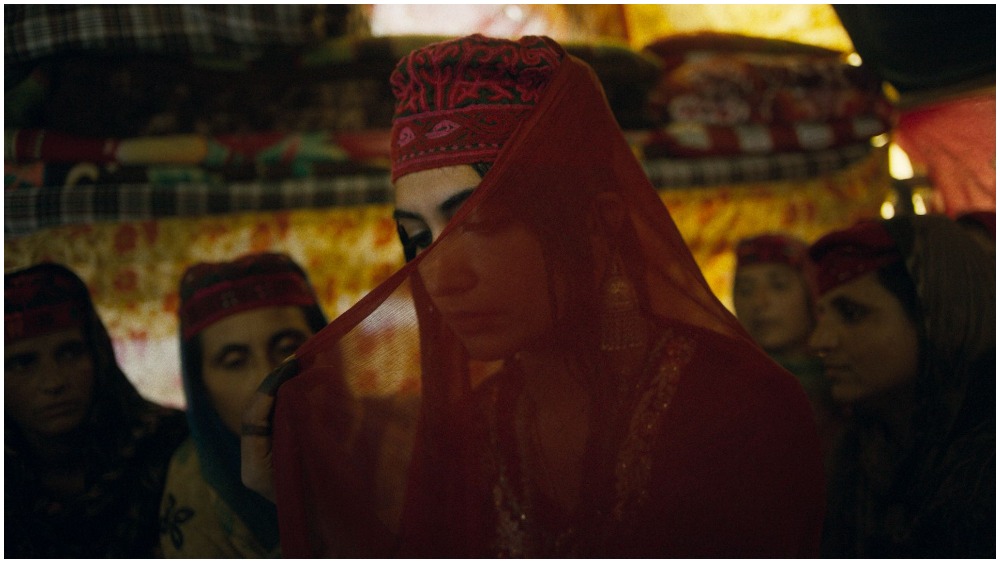
When movies started making headlines this spring due to pandemic delays, they tended to be the kinds of films you'd at least heard about: the new James Bond, Mulan, Tenet. But the situation was even more dire for foreign-language arthouse films that primarily get seen first by critics on the international festival circuit — which, of course, was shut down way back in March. Even if Wonder Woman 1984 was repeatedly pushed back, there was never any question that people were going to eventually see it. But stumbling on The Shepherdess and the Seven Songs in 2020 felt, as a result, a little like finding a needle in a haystack.
Shot in the high mountain pastures of the Himalayas in northwest India, Shepherdess tells the story of the bride Laila (Navjot Randhawa), who marries a nomadic herdsman and travels with him back to his village, where her beauty dangerously catches the attention of a local ranger. Though it's clear the fiercely independent Laila is a sort of stand-in for the region of Jammu and Kashmir (which is contested by India and Pakistan), director Pushpendra Singh is more whimsical than geopolitical with his narrative, pulling inspiration from poems written by a 14th-century Kashmiri mystic and a Rajasthan folk story.
The outcome is a masterpiece that links the political with the poetic, the lyrical with the corporeal. A dozen different shots are seared into my memory: the sun cresting a high alpine ridge; a snakeskin held up to the light; a woman lying in Ophelia-like repose in a river, surrounded by flowers.
I saw Shepherdess at the virtual New Directors/New Films festival, which was delayed to December from the spring. The film is still in talks to get a North American distributor, but, fingers crossed, it will be available more widely next year.
Maybe you'll even get to see it in a theater.
Jeva Lange was the executive editor at TheWeek.com. She formerly served as The Week's deputy editor and culture critic. She is also a contributor to Screen Slate, and her writing has appeared in The New York Daily News, The Awl, Vice, and Gothamist, among other publications. Jeva lives in New York City. Follow her on Twitter.
-
 The 9 best steroid-free players who should be in the Baseball Hall of Fame
The 9 best steroid-free players who should be in the Baseball Hall of Famein depth These athletes’ exploits were both real and spectacular
-
 ‘Bad Bunny’s music feels inclusive and exclusive at the same time’
‘Bad Bunny’s music feels inclusive and exclusive at the same time’Instant Opinion Opinion, comment and editorials of the day
-
 What to watch on TV this February
What to watch on TV this Februarythe week recommends An animated lawyers show, a post-apocalyptic family reunion and a revival of an early aughts comedy classic
